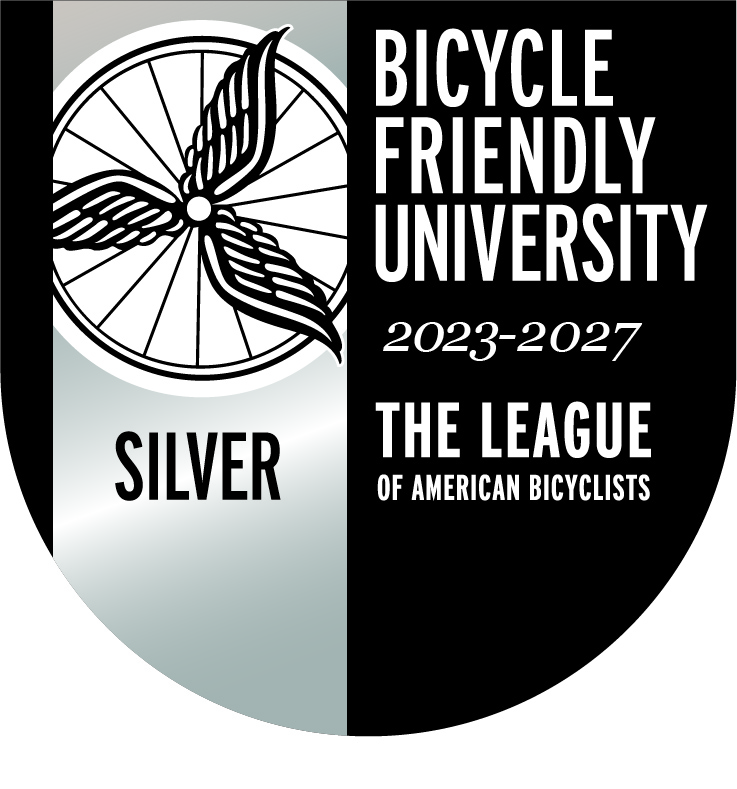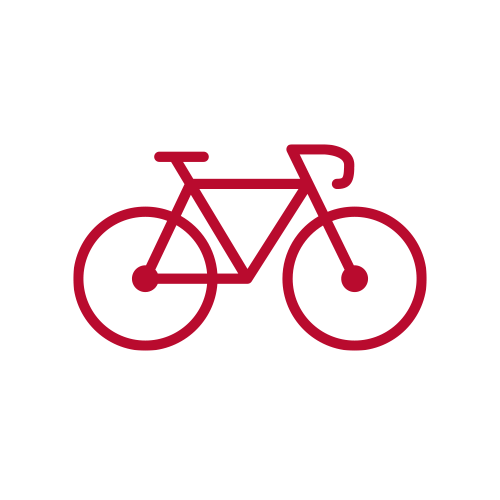You're going places. Get there safely.
Transportation and Traffic Management is dedicated to promoting safer roadways for all vehicles. By law, a bicycle is a vehicle. Educate yourself with the resources of this page, as we work to support The Ohio State University initiative to create safer roadways for students, faculty, staff and campus visitors.
Registering your bicycle can increase the chances of it being returned if it is lost or stolen on campus. Register your bike online for free.

The Ohio State University is a Silver Level Bicycle Friendly University
The Bicycle Friendly University (BFU℠) program recognizes institutions of higher education for promoting and providing a more bikeable campus for students, staff and visitors. The Ohio State University is a Silver Level Bicycle Friendly University. To read more about becoming a Bicycle Friendly University, please visit the League of American Bicyclists.




